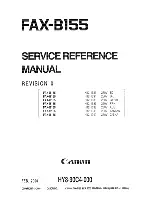
Español
4. No guarde nada en el pedal.
5. Enchufe la máquina directamente a la red. No utilice alargadores.
6. Si se derrama agua en la máquina, desenchúfela inmediatamente y póngase en contacto con el
proveedor autorizado local.
7. No coloque muebles sobre el cable.
8. No doble el cable, ni tire de él para desenchufar.
9. No toque el cable con las manos mojadas.
10. Coloque la máquina cerca de la toma de corriente.
11. No coloque la máquina sobre un objeto inestable.
12. No coloque la funda.
13. Si nota cualquier sonido o condición anormal, consulte con el proveedor autorizado local.
Para proporcionar una vida útil más larga a la máquina
1. No guarde esta máquina bajo la luz directa del sol ni en condiciones de mucha humedad. No utilice
ni guarde la máquina cerca de un calefactor, plancha, lámpara halógena ni ningún otro objeto que
desprenda calor.
2. Utilice únicamente jabones o detergentes neutros para limpiar la carcasa. El benceno, los disolventes y
los limpiadores en polvo pueden dañar la carcasa y la máquina, por lo que nunca se deben usar.
3. No deje caer ni golpee la máquina.
4. Consulte siempre este manual antes de cambiar o ajustar el prensatelas, la aguja o cualquier otro
elemento para asegurarse de que se ajustan correctamente.
Para reparar o ajustar la máquina
Si la máquina se estropea o precisa un ajuste, siga en primer lugar la tabla de localización de problemas
para inspeccionar y ajustar la máquina por sí mismo. Si el problema persiste, consulte con el proveedor
autorizado local.
CONSERVE ESTAS INSTRUCCIONES
Esta máquina ha sido diseñada para uso
doméstico.
PARA USUARIOS DE PAÍSES NO CENELEC
Este aparato no ha sido diseñado para ser utilizado por personas (niños incluidos) con alguna
discapacidad física, sensorial o mental, ni por personas sin experiencia o conocimientos técnicos,
a menos que hayan recibido supervisión o instrucciones relativas al uso del aparato por parte de
una persona responsable de su seguridad. Los niños deberán ser vigilados para asegurarse de
que no juegan con el aparato.
PARA USUARIOS EN PAÍSES CENELEC
Este aparato puede ser utilizado por niños de a partir de 8 años de edad y
por personas con capacidades físicas, sensoriales o mentales reducidas
o que carezcan de la experiencia y los conocimientos siempre y cuando
hayan recibido supervisión o instrucciones relativas al uso del aparato de
modo seguro y comprendan los riesgos existentes. No permita que los
niños jueguen con el aparato. La limpieza y el mantenimiento del usuario
no deben ser realizados por niños sin supervisión.
PRECAUCIÓN
Si deja esta máquina de coser desatendida, el interruptor de alimentación principal y de luz de la máquina
debe estar apagado o se debe desconectar el enchufe de la toma de corriente.
Al realizar el mantenimiento de la máquina de coser, o bien al retirar tapas, se debe desconectar la máquina o
el conjunto eléctrico del suministro retirando el enchufe de la toma de corriente.
II
Summary of Contents for 884-B01
Page 78: ...36 ...
















































